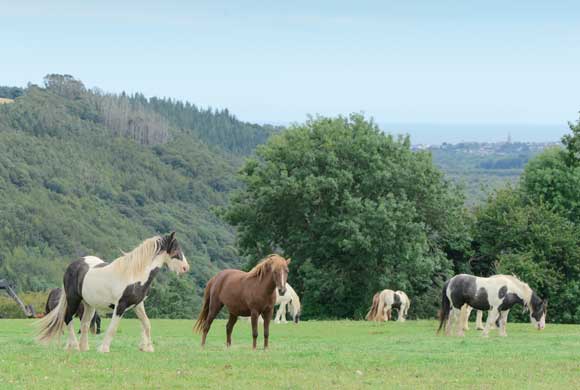
Can a horse get all its nutrition just by eating grass?
For horses who are turned out most of the time, good quality grass is key to ensuring they get all the nutrients they need. All members of the equine family have evolved to extract their necessary nutrition from grasses.
Unfortunately, very few owners have top quality pasture. Overgrazing, drought, poor management, poor soil and snow cover can all affect the quality of the grass and the horse’s ability to extract adequate nutrition.
Most horses will require supplementation with minerals, fodder (such as hay or haylage), or hard feed for at least part of the year. Some horses and ponies may need to have their grazing restricted to prevent obesity and/or Laminitis.
Get a soil analysis test done
The first step in assessing the quality of your paddocks is to get a soil analysis done. This will determine the type of soil, fertility level and soil pH, as well as any nutrient deficiencies. This information can be used to make fertilizer and liming recommendations. Teagasc offers a soil analysis service and details can be found on their website www.teagasc.ie
Soil nutrients are divided into two groups: the macronutrients and micronutrients. Macronutrients include nitrogen, phosphorus, potassium, calcium, magnesium and sulphur. While the micronutrients are minerals such as boron, chlorine, copper, iron, manganese, molybdenum, zinc, nickel, cobalt, iodine and selenium. Each nutrient has an effect on grass production and the health and development of the horses that graze on the pasture.
Where nutrients are deficient, the land can be fertilised with organic manure or bagged chemical manures. Organic manures are generally preferred for horse pasture because they release nutrients over a longer period, and at a slower rate, than chemical fertiliser, which tends to produce a rapid burst of grass growth. Organic manure also helps to improve the soil texture over time.
Grass is the most economic feed available, so efficient use of your grass can help to reduce the overall feed bill.
For more helpful tips visit our Welfare Information & tips page here.

Leave a Reply